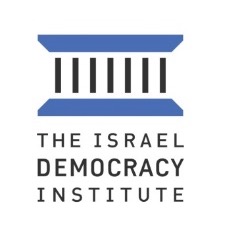Ahead of Prime Minister Bennett's first visit to Washington, Council data show partisan divides on the Israeli-Palestinian conflict, support for a Palestinian state, and more.
In recent years, the US-Israel relationship was stewarded by Israel’s longest-serving leader, former Prime Minister Benjamin Netanyahu, and the man whom he referred to as “the greatest friend that Israel has ever had in the White House,” former President Donald Trump. This week, the first meeting between the two countries’ newly elected leaders, President Joe Biden and Prime Minister Naftali Bennett, will set the tone for a new era of US-Israel relations.
New data from the 2021 Chicago Council Survey indicate that some differences in ideas about US policy toward Israel on Capitol Hill—heightened by the 11-day clash between Israel and Hamas last May—have corresponding divisions among the American public. The US public is sharply divided along partisan lines on key issues, including whether to take a side in the Israeli-Palestinian conflict, support for a Palestinian state, and restrictions on the uses of military aid to Israel. Moreover, it’s not just Americans who are at odds with each other. A comparison of the recent Chicago Council Survey and a Viterbi Family Center poll shows that the American public and Jewish Israelis have opposing views on what might be acceptable solutions to the Israeli-Palestinian conflict, while Israeli Arabs and Americans are broadly aligned on acceptable political outcomes.
Key Findings
- Americans prefer not to choose a side in the Israel-Palestinian conflict (58% no side, 32% choose to side with Israel, 8% with the Palestinians).
- Americans think either an independent Palestinian state on the West Bank and Gaza (56%) or a one-state solution in which Israelis and Palestinians are treated as equal citizens (60%) is acceptable. Relatively few say the status quo is acceptable (26%).
- Israeli Arabs also find a two-state (69%) or one-state (56%) resolution acceptable, but not the status quo. Israeli Jews tend to find all options unacceptable, though the status quo is the most acceptable (42%).
- Attitudes regarding specific US policies toward Israel differ by partisan orientation. For example, overall opinion divides closely on whether the United States should (50%) or should not (45%) restrict US military aid to Israel to prohibit its use in military operations against Palestinians. While a majority of Democrats favor these restrictions (62%, 32% oppose), Republicans are nearly the mirror opposite, with six in 10 opposing them (61%, 32% favor).
Methodology
Unless otherwise noted, results from the United States come from the 2021 Chicago Council Survey of the American public on foreign policy, a project of the Lester Crown Center on US Foreign Policy. The 2021 Chicago Council Survey was conducted July 7–26, 2021, by Ipsos using its large-scale nationwide online research panel, KnowledgePanel, among a weighted national sample of 2,086 adults, 18 or older, living in all 50 US states and the District of Columbia. The margin of sampling error for the full sample is +/- 2.33 percentage points, including a design effect of 1.1817. The margin of error is higher for partisan subgroups or for partial-sample items.
Partisan identification is based on respondents’ answer to a standard partisan self-identification question: “Generally speaking, do you think of yourself as a Republican, a Democrat, an Independent, or what?”
The 2021 Chicago Council Survey is made possible by the generous support of the Crown family and the Korea Foundation.
Results from Israel come from the Israeli Voice Index for July 2021, which was prepared by the Viterbi Family Center for Public Opinion and Policy Research of the Israel Democracy Institute. In the survey, which was conducted on the internet and by telephone from July 27 to 29, 2021, 599 men and women were interviewed in Hebrew and 151 in Arabic, constituting a representative national sample of the entire adult population of Israel 18 and older. The maximum sampling error for the entire sample was ± 3.59% at a confidence level of 95 percent. The fieldwork was done by the Midgam Institute. See the full data file.
About the Chicago Council on Global Affairs
The Chicago Council on Global Affairs is an independent, nonpartisan membership organization that provides insight—and influences the public discourse—on critical global issues. We convene leading global voices, conduct independent research, and engage the public to explore ideas that will shape our global future. The Council is committed to bringing clarity and offering solutions to issues that transcend borders and transform how people, business, and governments engage the world.
About the Viterbi Family Center
The Viterbi Family Center for Public Opinion and Policy Research at the Israel Democracy Institute—a nonpartisan think-and-action tank dedicated to fortifying Israeli democracy—taps into Israeli public opinion on a wide range of social, political, and policy issues. Findings inform the public discourse and provide a tool to decision makers to craft evidence-based attitudes and policies.
Annual monthly and ad-hoc surveys produce data in real time, focusing on issues that were particularly prominent in the public discourse prior to the survey.
The Viterbi Family Center holds the largest, most comprehensive database on public opinion surveys in Israel. Learn more.





